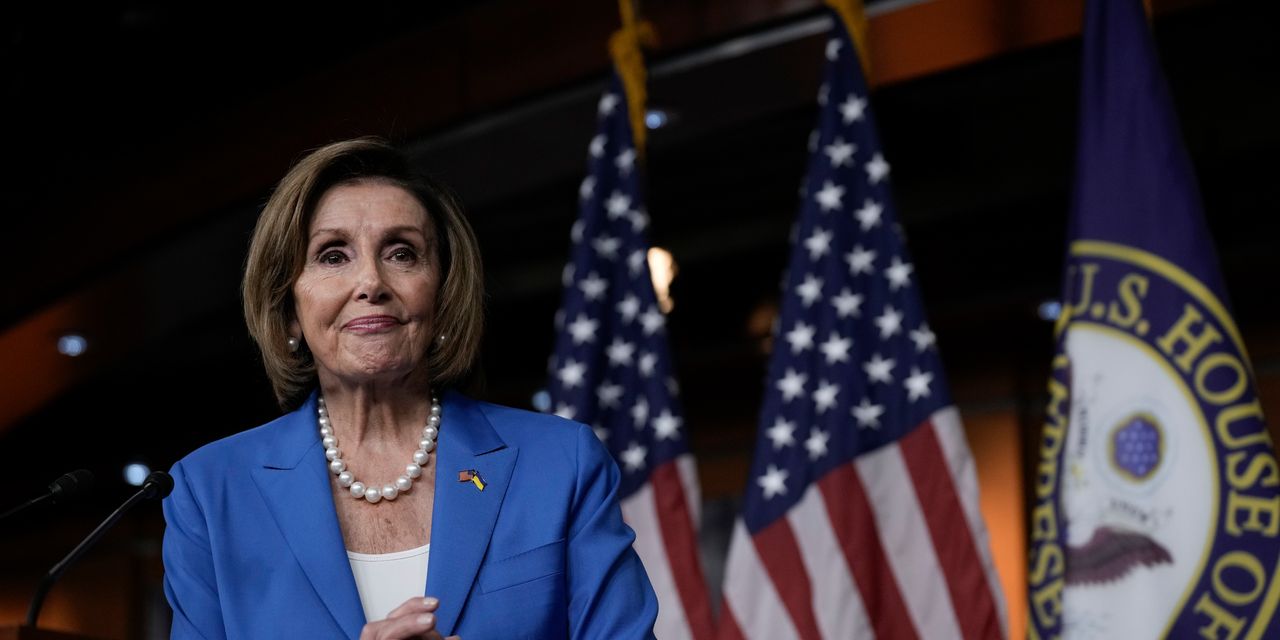Democrats will likely lose more than 20 seats in the House of Representatives — and with them their House majority — in the Nov. 8 midterm elections, according to Cook Political Report Editor-in-Chief Amy Walter.
The general consensus among political analysts is that Democrats will lose the House but that control of the Senate could go either way.
Election-forecasting website FiveThirtyEight gives Republicans an 82% chance of winning the House — a significant uptick since early October, when the party’s odds hovered around 68%. FiveThirtyEight’s model lists the Senate as a “dead heat,” giving Democrats 53-in-100 odds of maintaining their majority.
It’s also unlikely that the House will end up with a narrow majority, unlike on the Senate side, where Democrats currently have a 50-seat majority, with Vice President Kamala Harris serving as a tiebreaker when necessary.
FiveThirtyEight currently forecasts that the number of seats controlled by Republicans will be 230, or a total net gain of 17 seats. Republicans only need to gain five seats to win a narrow majority.
Walter told reporters on Thursday that this year’s midterms are becoming more of a “traditional referendum, and that means Democrats losing the House, probably somewhere in the range of 20 seats or more.”
Over the summer, Walter noted, there was “increased enthusiasm among Democrats who up until that point were less engaged than Republicans,” a sentiment that showed up in polling and in some special House elections.
“But here we are with two weeks to go, and it feels very much as if we’re back to where we were earlier in the year, where the fundamentals still driving the election [are] opinions about the president, opinions about the economy,” she said.
Inflation is top of mind for more than 80% of Americans, according to a Monmouth University poll released earlier this month. That makes many Democrats’ campaigns even more challenging.
“The Democrats can absolutely make the point that Republicans haven’t offered a better solution. But this isn’t a presidential election, it’s a midterm election,” Walter said. “There is not a choice between picking the leader of the party, the leader of the free world. This is about sending a message to the party that’s in charge.
“And in that sense, Democrats have a very hard challenge in front of them,” she continued. “They can’t say that … the economy is in a good place. They can say technically it is getting better in some ways. But you can’t convince people about how they are feeling.”
See also: Just 30% of Americans approve of how Biden is handling the No. 1 issue — inflation
The Cook Political Report currently rates five House districts represented by Democrats as “likely” Republican and four Democratic-held seats as “lean” Republican. No “likely” Democratic seats are held by Republicans, and only two seats rated as “lean” Democrat have Republican incumbents, meaning that Republicans could net seven seats without winning any of the 23 Democratic seats listed as a “toss-up.”
Some of this is due to redistricting following the 2020 census, such as in Tennessee’s 15th Congressional District, now rated as “likely” Republican. Democrat Jim Cooper, who has served in Congress since 2003, announced in January that he would not seek re-election due to the state legislature’s “dismembering” of his district.
A loss of the House by the majority party would follow historical trends. In midterm elections from 1934 to 2018, the president’s party has only gained House seats three times and has averaged a loss of 28.
Most recently, President Donald Trump saw a loss of 40 House seats in 2018, and President Barack Obama lost a total of 76 seats while in office, 63 of which were lost in the 2010 midterms.
Now read: Betting markets say Republicans have over 70% chance of winning Senate in midterm elections
Also see: Here’s what the midterm elections could mean for the financial sector, energy, healthcare and more
Plus: If this seat flips red, Republicans will have ‘probably won a relatively comfortable House majority’
